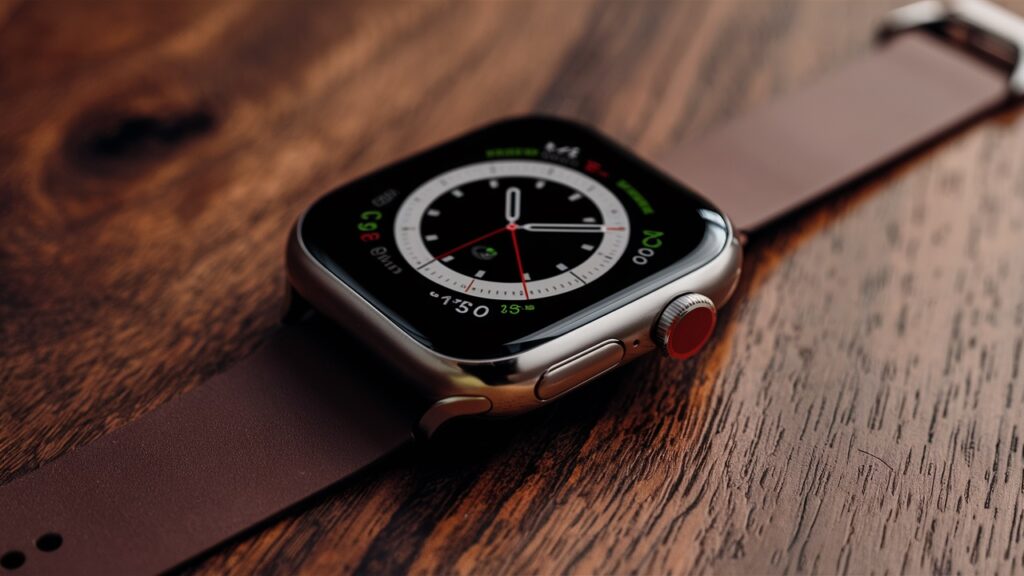Smartwatches are not inherently bad for health. However, excessive use can lead to issues like eye strain and anxiety.
Smartwatches have become popular tools for monitoring health and fitness. They offer features like heart rate tracking, sleep analysis, and activity reminders. Many users appreciate the convenience of receiving notifications and controlling music from their wrists. Despite these benefits, concerns arise regarding potential negative impacts on health.
Some users may experience digital fatigue due to constant connectivity. Others might feel pressure to meet fitness goals, leading to anxiety. Understanding both the advantages and drawbacks of smartwatches is crucial. By balancing their use, individuals can enjoy the benefits while minimizing any adverse effects on their well-being.
The Rise Of Smartwatches
Smartwatches have become popular in recent years. They offer convenience and connectivity. Many people wear them daily. But do they affect health? Let’s explore their rise.
Popularity And Market Growth
Smartwatches gained immense popularity quickly. Sales figures show significant growth. Here are some key statistics:
| Year | Sales (in millions) |
|---|---|
| 2017 | 20 |
| 2018 | 30 |
| 2019 | 50 |
| 2020 | 75 |
Smartwatches are more than just a trend. They are a lifestyle choice. Users enjoy tracking fitness and health metrics.
Key Features And Advancements
Modern smartwatches come with many exciting features. Here are some popular ones:
- Heart rate monitoring: Tracks heart beats.
- GPS tracking: Helps in navigation.
- Sleep tracking: Monitors sleep patterns.
- Fitness apps: Offers exercise routines.
- Notifications: Alerts from your phone.
These features help users stay healthy. Smartwatches can remind you to move. They can motivate you to exercise.
Health Monitoring Capabilities
Smartwatches offer impressive health monitoring features. These tools help track vital signs and fitness metrics. Users can gain insights into their health and wellness. Let’s explore two key areas: heart rate and sleep tracking, and fitness and activity metrics.
Heart Rate And Sleep Tracking
Heart rate tracking is a common feature in smartwatches. This feature helps users monitor their heart health.
- Continuous heart rate monitoring.
- Alerts for abnormal heart rates.
- Real-time data during workouts.
Sleep tracking is another valuable capability. It helps users understand their sleep patterns.
- Tracks sleep duration and quality.
- Identifies deep and light sleep stages.
- Offers insights for better rest.
Fitness And Activity Metrics
Smartwatches track various fitness activities. This feature encourages users to stay active.
| Activity Type | Metrics Tracked |
|---|---|
| Walking | Steps, distance, calories burned |
| Running | Pace, heart rate, route |
| Cycling | Speed, distance, elevation |
| Swimming | Lap count, stroke type, distance |
Users can set fitness goals and track their progress. This data motivates users to improve their health.
Potential Health Concerns
Smartwatches bring many benefits. Yet, they can pose health risks. Understanding these risks is important for users.
Radiation Exposure Risks
Smartwatches connect to smartphones and networks. They emit low levels of radiation. This radiation is similar to that from mobile phones.
Some studies suggest potential health effects. Long-term exposure might affect health. The following table outlines key points:
| Concern | Details |
|---|---|
| Type of Radiation | Non-ionizing radiation |
| Possible Effects | Headaches, fatigue, and sleep issues |
| Regulatory Stance | Most health agencies find it safe |
Skin Irritation And Allergies
Smartwatches often contain various materials. Some users experience skin irritation. Common reactions include:
- Redness
- Itching
- Rashes
Materials like nickel and certain plastics can cause allergies. It is crucial to choose watches made from hypoallergenic materials. Here are some tips:
- Check for hypoallergenic labels.
- Avoid prolonged contact with sweat.
- Clean the watch regularly.
Watch out for reactions. If irritation occurs, stop using the device. Consult a doctor for persistent issues.
Psychological Impact
Smartwatches offer many features. They track health metrics continuously. This can affect mental well-being. Understanding these impacts is important.
Obsession With Health Metrics
Many users become fixated on health data. They often check their stats multiple times a day. This obsession can lead to:
- Increased stress levels
- Unhealthy comparisons with others
- Unrealistic health expectations
Constantly monitoring health can create a cycle. Users may feel pressured to improve metrics. This pressure can lead to:
- Excessive exercise
- Strict dieting
- Neglecting other life aspects
Over time, this obsession can lead to burnout. A balanced approach is crucial for mental health.
Stress And Anxiety From Constant Monitoring
Smartwatches can cause unnecessary stress. Users may worry about meeting goals. This constant pressure can lead to:
- Heightened anxiety levels
- Sleep disturbances
- Difficulty in relaxation
Studies show that constant notifications create distractions. This can affect focus and productivity. Users may feel overwhelmed by data overload.
Consider limiting notifications. Set specific times to check metrics. This can help reduce stress and improve overall well-being.
Impact On Sleep Patterns
Smartwatches can affect your sleep in various ways. Many people wear them while sleeping. They track sleep patterns and monitor health. However, this can lead to issues.
Blue Light Exposure
Smartwatches emit blue light. This light can interfere with sleep. Here’s how:
- Disrupts melatonin production
- Delays sleep onset
- Causes restless nights
Many people check notifications before bed. This habit increases blue light exposure. It can make falling asleep harder.
Sleep Tracking Accuracy And Anxiety
Smartwatches track sleep but are not always accurate. Inaccurate data can cause worry. People may feel anxious about their sleep quality.
Here’s a breakdown of how this affects health:
| Issue | Effect |
|---|---|
| Inaccurate tracking | Increased anxiety |
| Comparing data | Unnecessary stress |
| Over-reliance on data | Less trust in body signals |
People may obsess over their sleep stats. This can lead to poor sleep quality. The focus shifts from rest to data collection.
Smartwatch Safety Features
Smartwatches offer various safety features. These features enhance personal security. They can help in emergencies. Users can feel more protected with these tools.
Emergency Sos And Fall Detection
Emergency SOS is a vital feature. It allows quick access to help. Just press a button for a few seconds. The watch will call emergency services.
Fall detection is another important function. If the watch detects a hard fall, it alerts you. If you don’t respond, it will call for help.
Here are some key points:
- Immediate help in emergencies.
- Automatic alerts for falls.
- Easy to use and accessible.
Health Benefits Of Timely Alerts
Smartwatches provide timely health alerts. These alerts can prevent serious health issues. They remind you to move, breathe, or hydrate.
Regular notifications can improve well-being. Here’s how:
| Alert Type | Health Benefit |
|---|---|
| Heart Rate Alerts | Detects irregular heartbeats. |
| Activity Reminders | Encourages regular movement. |
| Sleep Tracking | Improves sleep quality. |
Timely alerts lead to better health choices. Users can monitor their fitness easily. This helps create a healthier lifestyle.
Comparing Smartwatches And Traditional Watches
Smartwatches and traditional watches serve different purposes. Each type has unique features and health implications. Understanding these differences helps make informed choices.
Differences In Health Implications
Smartwatches come with advanced health tracking features. They monitor heart rate, sleep, and activity levels. These features can help improve your fitness.
Traditional watches lack these health-tracking capabilities. They mainly tell time and may have basic features like alarms.
| Feature | Smartwatch | Traditional Watch |
|---|---|---|
| Heart Rate Monitor | Yes | No |
| Sleep Tracking | Yes | No |
| Activity Tracking | Yes | No |
| Notifications | Yes | No |
| Battery Life | Short (1-3 days) | Long (months to years) |
Lifestyle Considerations
Smartwatches suit active lifestyles. They encourage movement and remind users to stay fit. This can lead to better overall health.
Traditional watches fit well with formal settings. They offer elegance and simplicity. Many people prefer them for everyday use.
- Smartwatch: Great for fitness enthusiasts.
- Traditional Watch: Ideal for professionals.
- Smartwatch: Requires regular charging.
- Traditional Watch: Low maintenance.
- Consider your daily activities.
- Think about your health goals.
- Choose based on your style.
Expert Opinions And Research
Understanding the health impact of smartwatches is crucial. Experts share various views. Research studies provide insights. This section explores medical community perspectives and recent findings.
Medical Community Perspectives
The medical community holds diverse opinions on smartwatches. Some highlight benefits. Others raise concerns about potential health risks. Here are key points:
- Heart Rate Monitoring: Many doctors praise this feature. It helps track fitness levels.
- Stress and Sleep Tracking: These tools aid in mental health management.
- Over-reliance Risks: Some experts warn of users becoming too dependent.
- Data Accuracy: Concerns exist about the reliability of data.
Recent Studies And Findings
Recent research sheds light on smartwatch health effects. Studies indicate both advantages and drawbacks. Here are notable findings:
| Study | Findings |
|---|---|
| Study A (2022) | Smartwatches improve physical activity levels significantly. |
| Study B (2023) | Excessive notifications may increase anxiety in users. |
| Study C (2021) | Heart rate monitoring helps detect irregularities early. |
These studies show a mixed impact on health. Users should consider the balance. Understanding both sides is essential for making informed decisions.
Making An Informed Decision
Smartwatches have become popular for tracking health and fitness. Many people wonder if they are good or bad for health. Understanding the benefits and risks is essential. This helps users make smart choices.
Balancing Benefits And Risks
Smartwatches offer many advantages. They can track heart rate, steps, and sleep patterns. Here are some benefits:
- Health Monitoring: Track vital signs easily.
- Fitness Tracking: Set goals and monitor progress.
- Convenience: Receive notifications without checking your phone.
Despite the benefits, there are risks to consider:
- Over-reliance: Dependence on tech may lead to less physical activity.
- Distraction: Notifications can interrupt daily tasks.
- Privacy concerns: Data collection raises questions about personal information security.
Finding a balance is crucial. Weigh the pros and cons before using a smartwatch.
Personal Health And Technology Use
Your health should always come first. Here are tips to use technology wisely:
- Set Boundaries: Limit screen time and notifications.
- Stay Active: Don’t let the watch replace physical activity.
- Monitor Data: Regularly check the information collected.
Personal health varies for everyone. Some may benefit greatly from smartwatches. Others might face challenges. Always listen to your body and mind.
Future Of Wearable Technology
The future of wearable technology promises exciting changes. Smartwatches are evolving rapidly. They can monitor health in ways we never imagined. As technology advances, so does our understanding of health.
Innovations In Health Monitoring
Smartwatches now include advanced features. These innovations help track various health metrics:
- Heart Rate Monitoring: Continuous tracking of heart rates.
- Sleep Tracking: Analysis of sleep patterns.
- Blood Oxygen Levels: Measuring oxygen saturation in blood.
- ECG Monitoring: Detecting heart irregularities.
These features lead to better health management. Users can detect issues early. Data collected can guide lifestyle changes.
Regulations And Consumer Safety
As wearable technology grows, so does the need for regulation. Consumer safety is vital. Regulatory bodies ensure products are safe and effective. Key aspects include:
| Aspect | Description |
|---|---|
| Data Security: | Protecting personal health data from breaches. |
| Accuracy: | Ensuring devices provide reliable health information. |
| Certification: | Devices must meet specific safety standards. |
Users must trust their smartwatches. Strong regulations can enhance this trust. Safe devices help users feel secure in their health management.

Frequently Asked Questions
Is Wearing A Smartwatch Harmful To Health?
Wearing a smartwatch is generally safe for most people. However, some users may experience skin irritation from prolonged contact. Additionally, excessive screen time can lead to eye strain. It’s essential to take breaks and choose a comfortable fit to minimize any potential health issues.
Do Smartwatches Emit Harmful Radiation?
Smartwatches emit low levels of radiation, similar to mobile phones. Current research indicates that this radiation is not harmful to human health. Regulatory bodies, like the FCC, set safety standards for these devices. Therefore, wearing a smartwatch should not pose significant health risks regarding radiation exposure.
Can Smartwatches Affect Sleep Quality?
Smartwatches can impact sleep quality, primarily due to notifications and screen light. Receiving alerts during the night may disrupt your sleep cycle. Additionally, some users may find the devices distracting. To improve sleep, consider turning off notifications or using “Do Not Disturb” mode at night.
Are There Benefits Of Using Smartwatches For Health?
Yes, smartwatches offer several health benefits. They can monitor heart rate, track workouts, and help manage stress. Many models also include sleep tracking features. These functions encourage healthier habits, making it easier to stay active and informed about your health.
Conclusion
Smartwatches offer both benefits and drawbacks for health. While they can enhance fitness tracking, excessive use may lead to stress and distractions. It’s essential to find a balance. Monitoring your usage and being mindful of your health can help you enjoy the advantages without the negative impacts.
Prioritize your well-being.








